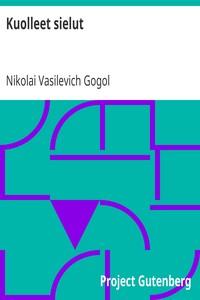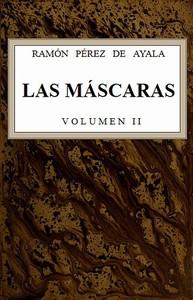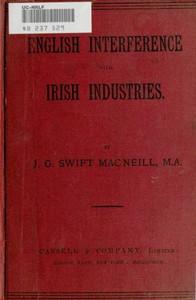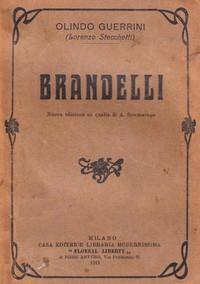Read this ebook for free! No credit card needed, absolutely nothing to pay.
Words: 1791 in 1 pages
This is an ebook sharing website. You can read the uploaded ebooks for free here. No credit cards needed, nothing to pay. If you want to own a digital copy of the ebook, or want to read offline with your favorite ebook-reader, then you can choose to buy and download the ebook.
A FEW REMARKS ON THE HISTORY AND CONSTRUCTION OF CHINESE POETRY
THE TECHNIQUE OF CHINESE POETRY
BIOGRAPHICAL NOTES OF A FEW OF THE MORE EMINENT CHINESE POETS
A FEW REMARKS ON THE HISTORY AND CONSTRUCTION OF CHINESE POETRY
The earliest Chinese poems which have been preserved and handed down to posterity are contained in the 'Shi-King', or Book of Poetry. Translations of this book were first made by Roman Catholic missionaries, and later by Dr. Legge whose translation, being in English, is better known.
The Shi-King contains three hundred odd poetical compositions, or odes, as they might more correctly be described, most of them being set to music and sung on official and public occasions.
But many more odes than those in the Shi-King existed at the dawn of Chinese literature. Some native scholars think that several thousand odes were composed by princes, chiefs, and other men of the numerous petty States which were included in Ancient China; and that criticism and rejection by later literary compilers, especially Confucius, reduced the number deemed worthy of approval to 305, which make up the Shi-King. It is, however, quite impossible to say how many odes were composed in that early period; many more than those preserved in the Shi-King undoubtedly were made, and we can only regret that, when later scholars began to collect and criticize these earliest poetical effusions of their ancestors, political and other motives induced them to prune or lop off whole branches of the nascent tree of poetry with such unsparing hands. Fragments of a few early odes not contained in the Shi-King remain, but such fragments are not numerous.
It has been necessary to give this brief account of the Shi-King because it has loomed so largely in the eyes of students of Chinese literature as to exclude from their vision the vast field of Chinese poetry in which hundreds of famous Chinese poets have, at different periods, wandered, and mused, and sung, for two or three thousand years, and their wanderings are described and their musings sung in thousands of poems which are unknown to foreign students of Chinese literature. They have heard of the Shi-King, a few even have read it; but of the great poets of China, who have in a long succession appeared and done immortal work and passed away during nearly three thousand years, they know but little or nothing at all. My object in publishing this little book is to correct this false perspective, not by assailing the Shi-King, but by bringing into view a few of the poets and a few of their poems , and thus make a beginning in an undertaking that will be, I hope, continued and perfected by men who have more leisure and greater poetical skill and inspiration than I possess.
After the compilation of the 300 odes by Confucius, there was a period of about one hundred years during which but little attention was given to the making of poetry. The earliest poetical compositions handed down after those preserved in the Shi-King are the 'Li-Sao' by K?h-Yuen, of the Tsu State, 280 B.C., several poems by Su-Wu and Li-ling, and nineteen poems by unknown writers. All these were composed during the Han Dynasty or earlier, and they are regarded as poetical compositions of great worth by native scholars, although they do not conform to the rules which have guided Chinese poets in writing poetry since the T'ang Dynasty. Indeed, one commentator has described their perfection as 'the seamless robe of heaven', i.e. the dome of heaven--the sky. These early poetical compositions are marked by greater simplicity of language, deeper feeling, and more naturalness than the poetry of later dynasties, which is often cramped by the highly elaborate technique introduced by the poets of the T'ang Dynasty.
'The Journey Back,' 'Only a Fragrant Spray,' 'The Swallow's Song,' 'The Innkeeper's Wife,' 'A Song of Tze-Yuh,' 'A Maiden's Reverie,' 'Su Wu's Farewell to his Wife,' 'Reflections on the Brevity of Life,' are specimens of this period.
During the later Han Dynasty, especially in the reign of Kien-An , and in the reign of Hwang-T'su of the Wei Dynasty, several poets of conspicuous ability arose, and their compositions compare favourably with the three hundred odes and the ancient poems following the odes.
From the Wei Dynasty to the T'sin Dynasty, and on through the 'Luh-Chao' , one poet after another gained an ascendancy and each found many imitators; but the poetry of this period is more elaborate and florid than deep and natural.
Free books android app tbrJar TBR JAR Read Free books online gutenberg
More posts by @FreeBooks

: Trial of Deacon Brodie by Roughead William Editor Brodie William Other Smith George Other - Brodie William 1741-1788 Trials litigation etc.; Trials (Robbery) Scotland
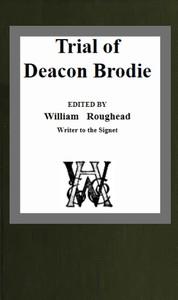

: Kuolleet sielut by Gogol Nikolai Vasilevich Suomalainen Samuli Translator - Satire; Humorous stories; Russia Social life and customs 1533-1917 Fiction; Swindlers and swindling Russia Fiction
